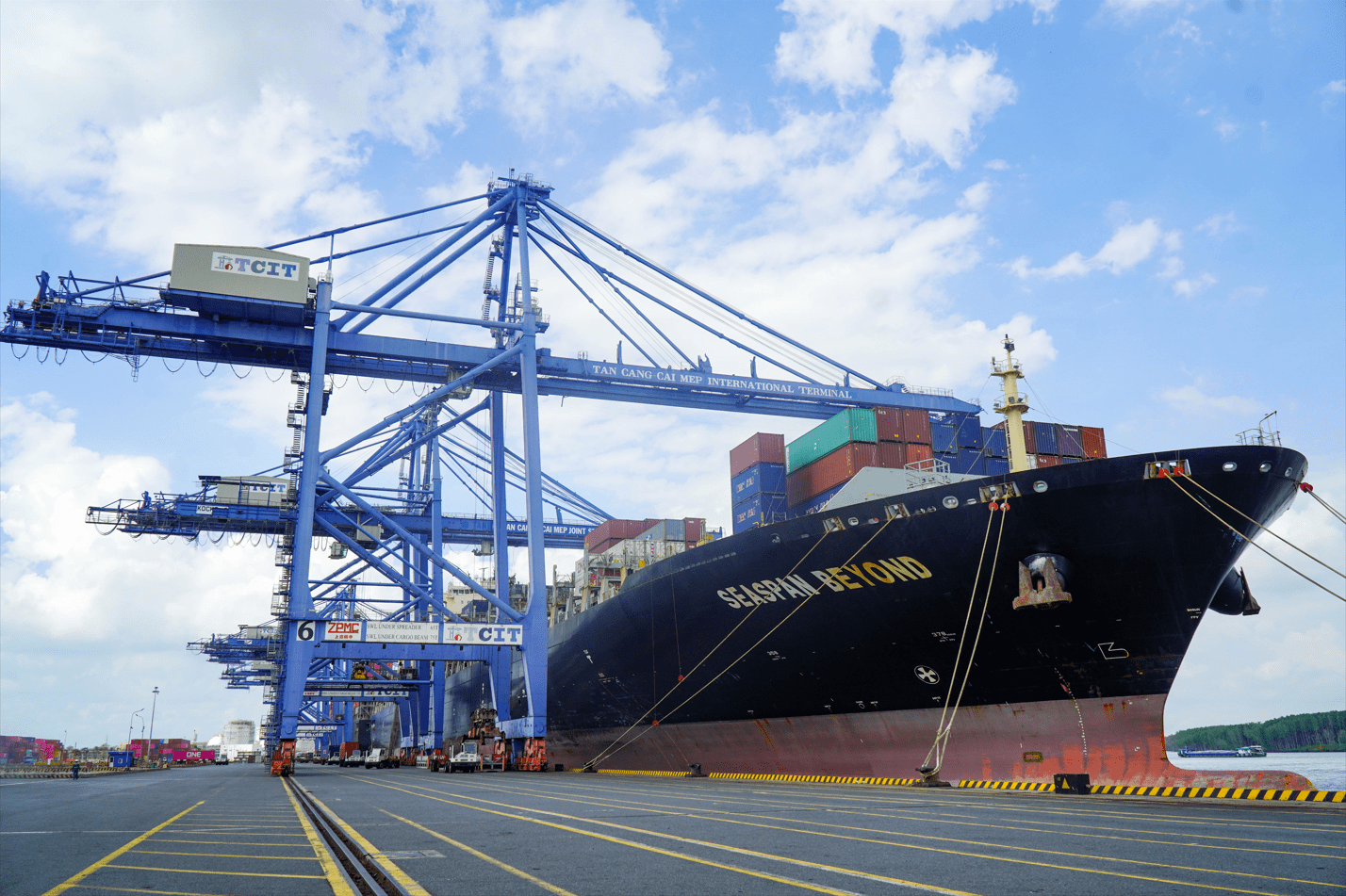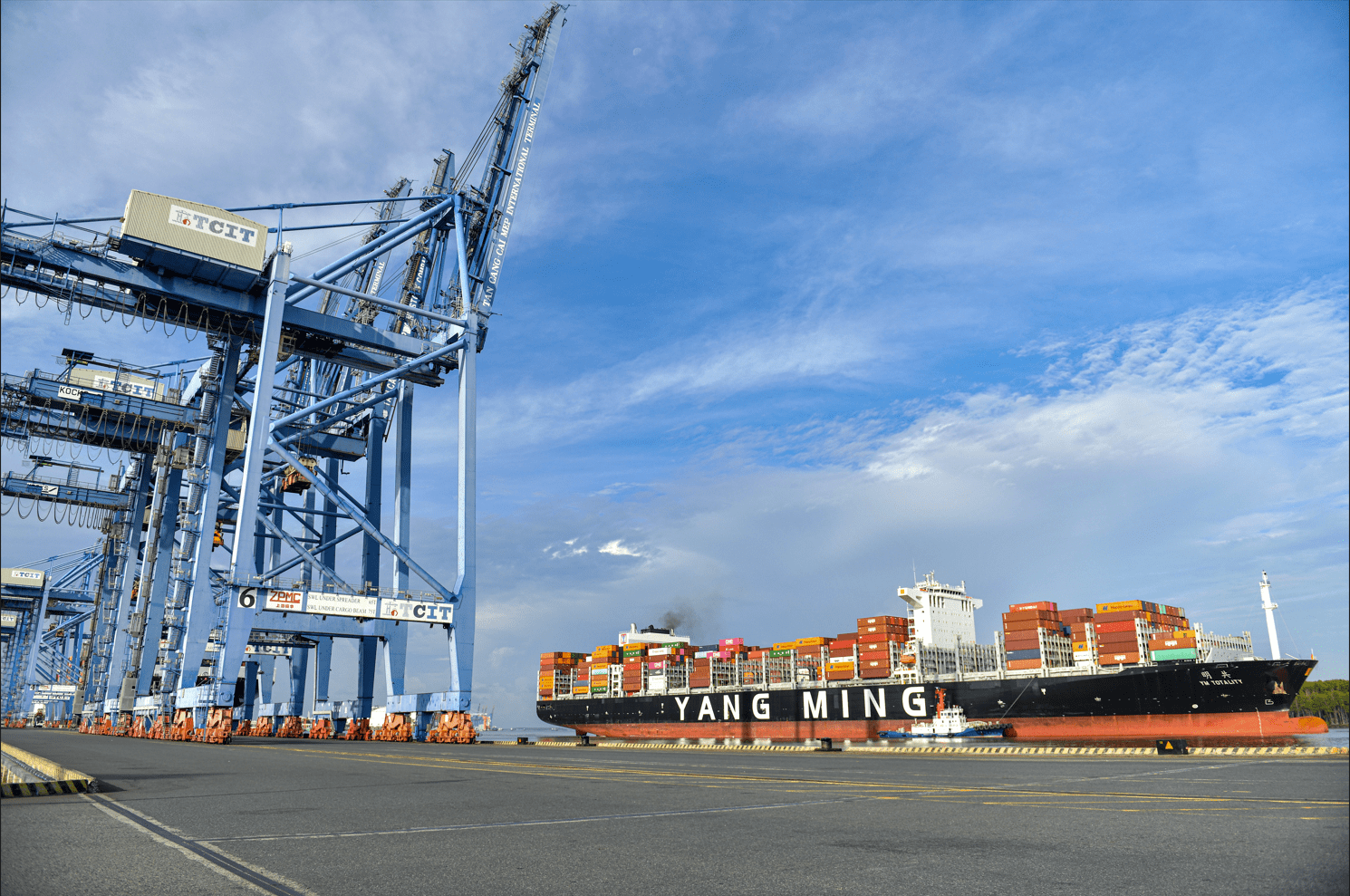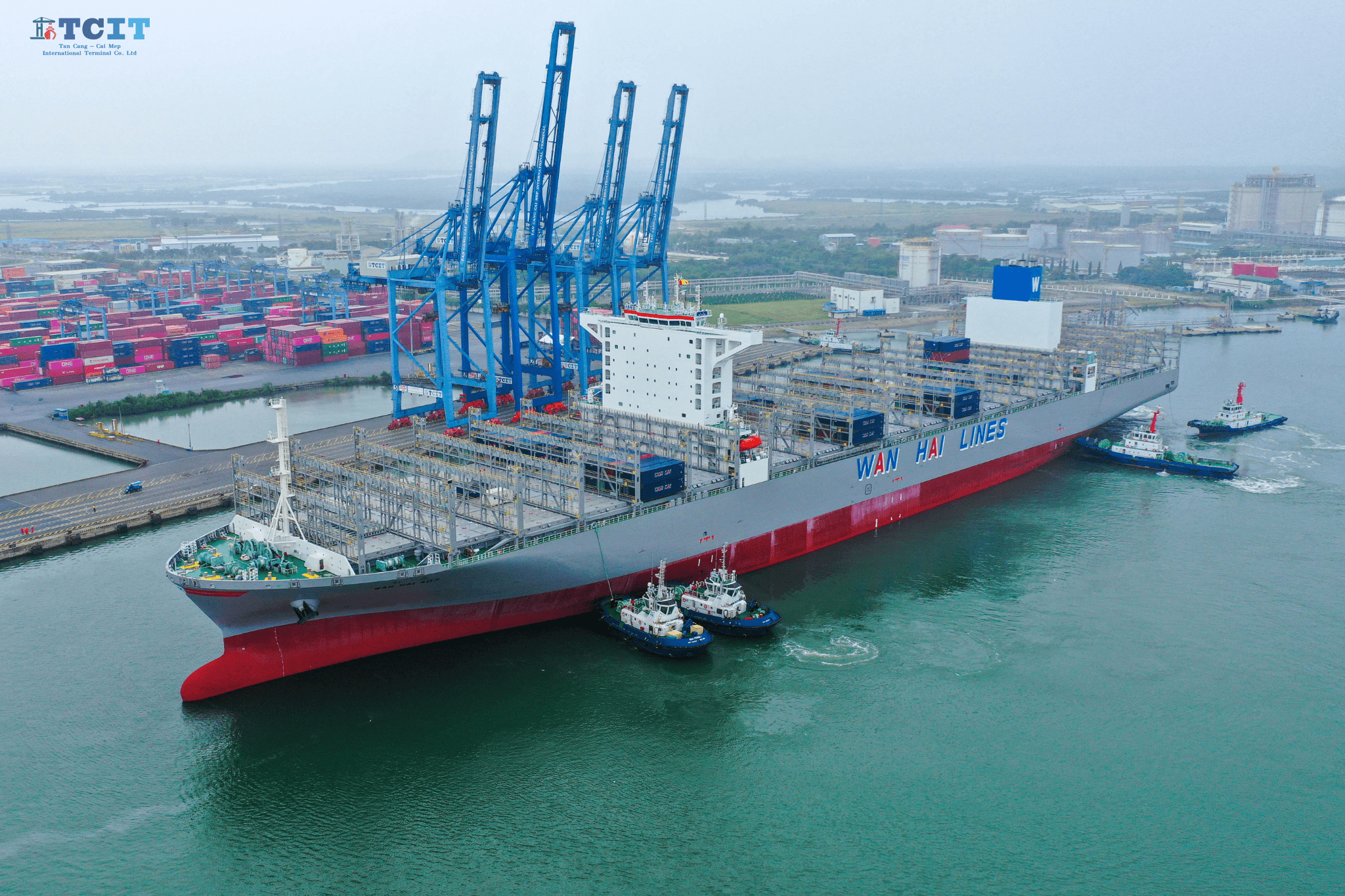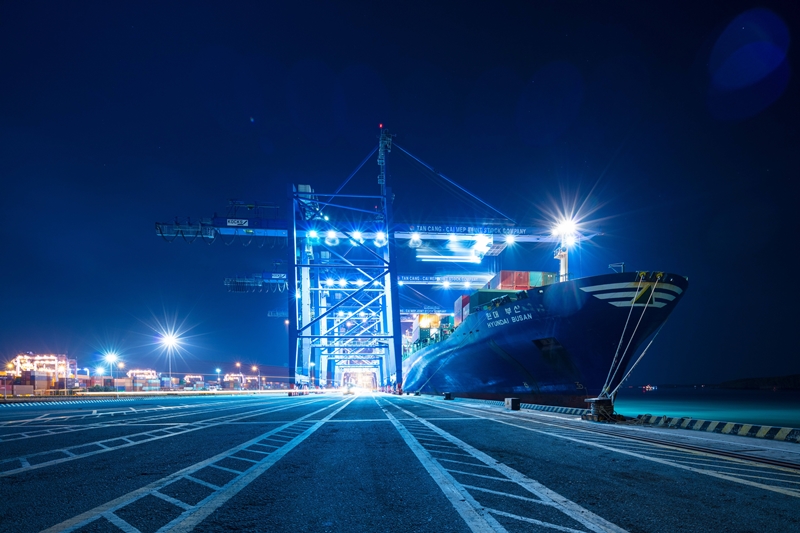
Yang Ming Reports Financial Results for 2018
Yang Ming Marine Transport Corporation (Yang Ming) held its 336th Board Meeting on 25th March to approve its 2018 annual financial report.
The consolidated revenues of 2018 totaled NTD 141.83 billion (USD 4.70 billion), up 8.21 % compared with NTD 131.08 billion (USD 4.35 billion) in revenue from previous year. The company’s net loss, after tax, was NTD 6.59 billion (USD 218.5 million), EPS NTD -2.53. Volumes in 2018 increased to 5,232 thousand TEUs, up 11% year over year.
Yang Ming’s 2018 operating results have been significantly impacted by higher global bunker fuel prices, which increased by 31.17% compared with the previous year. Despite the 11% volume growth due to strategies implemented in 2018, Yang Ming’s operating margins were eroded by higher bunker costs. Based on market data collected by Alphaliner showing weak demand growth at 4.8% and an excess supply growth at 5.7% in 2018, freight rates struggled to rise to levels that could set off against the higher bunker costs.
Moving into 2019, unsettling geopolitical risk factors, including the ongoing U.S.-China trade war and Brexit, continue to impact bunker fuel prices and conditions in global trade. In addition, the International Maritime Organization (IMO) 2020 Low Sulphur regulations, which are scheduled for implementation on 1st January 2020, will inevitably increase operating costs, as global carriers decide between installing scrubbers on vessels or using more costly low-sulfur fuel in order to be in compliance.
Based on the latest forecast from Alphaliner, the supply growth rate in 2019 is projected at 3.1% while the demand rate will grow at around 3.6%. Therefore, the trend in global shipping is moving towards a more balanced level of supply and demand. Driven by the IMO 2020 Low Sulphur regulations, the world’s fleet may also see a greater number of older inefficient vessels scrapped in the near term, which would add complexity and challenges to the shipping market.
In light of the uncertainties surrounding global trade and the pressure on bunker prices, Yang Ming remains cautiously conservative on its outlook for 2019.
CMA CGM Boxship Refueled with Sustainable Marine Biofuel in Rotterdam Port
The 5,095 TEU containership CMA CGM White Shark was successfully refueled with sustainable marine biofuel oil while calling at Rotterdam on March 23, 2019.
The test, announced earlier this month, is said to represent a major step towards the decarbonization of ocean freight.
The biofuel trial saw French shipping company CMA CGM, the Port of Rotterdam, the GoodShipping Program and IKEA Transport & Logistics Services work together in a first-of-its-kind partnership for the shipping industry.
As explained, results from the trial will give the maritime sector a vital demonstration into the scalability, sustainability and technical compliance of sustainable marine bio-fuel oil.
This will benefit all industry stakeholders in their environmental strategies, in line with the impending International Maritime Organisation (IMO) decarbonization pathway, according to the companies.
The sustainable marine bio-fuel oil was developed by GoodFuels after undergoing three years of intensive testing with marine engine manufacturers. The second-generation bio-fuel oil is completely derived from forest residues and waste cooking oil products, is expected to deliver 80-90% well-to-propeller CO2 reduction versus fossil equivalents, and virtually eliminates sulphur oxide (SOx) emissions – all without any requirement for engine modifications.
The trial was facilitated by the GoodShipping Program, a sustainable initiative dedicated to decarbonizing ocean freight.
BDO: Shipping Confidence Rises Despite Geopolitical Uncertainty
Shipping confidence has increased in the last three months despite ongoing geopolitical uncertainty, shipping adviser and accountant BDO said.
“It is encouraging to begin the year with a small uptick in confidence,” Richard Greiner, Partner, Shipping & Transport at BDO, commented.
“Despite continuing doubts and fears about trade wars, China’s GDP, uncertainty over exchange rates, President Trump’s decision-making, Brexit and general political instability in many parts of the world, shipping can still find reasons to be cheerful,” he added.
The average confidence level rose to 6.2 out of a maximum score of 10 this quarter compared to 6 in Q4 2018.
Confidence was up in Europe, from 6.1 to 6.3, and in North America, from 5.2 to 5.6. In Asia, meanwhile, there was a drop in overall confidence levels to 5.8 from the 12-month high of 6.3 recorded in the previous quarter.
According to BDO, brokers were behind much of the increase in confidence. Their score was up from 5.2 to 5.9. On the other hand, the rating for owners and managers was down slightly from 6.4 to 6.3 and from 6.0 to 5.8 respectively. Charterers’ confidence was also down, from 6.8 to 6, although this still compared favourably with the rating of 5 returned 12 months ago.
The survey was launched in May 2008 with an overall rating for all respondents of 6.8 out of 10.
APL starts reefer shipments from central Vietnam
The APL Chu Lai Express (CHX) service will depart today, Monday for China with the first reefer shipment of bananas from the Chu Lai Tam Hiep Port in Vietnam’s central province of Quang Nam.
This marks the beginning of more reefer shipments from the port as Truong Hai Automobile Joint-Stock company (THACO) recently inaugurated a new cold storage facility and further develops its logistics infrastructure in the Chu Lai Open Economic Zone.
APL started its Chu Lai service in March 2018. “The service is dedicated to serving Chu Lai’s emerging industrial zones in Quang Nam and her neighbouring Central Coast and Central Highlands provinces. APL’s CHX service has been growing as part of the business ecosystem that enables Vietnamese exporters and importers to gain immediate access to South China and Hong Kong where cargoes are relayed worldwide,” said Arnaud Coudray, APL cco
The weekly CHX service calls the ports of Chu Lai, Hong Kong and Shekou in China. From the latter two transhipment hubs, shippers get connected to more Intra-Asia markets such as Japan, Korea and Singapore; as well as farther destinations such as North America, the Middle East and Europe among others via APL’s service network.
Among APL's reefer solutions include SMARTcare+, an atmospheric regulating technology that preserves the quality of perishable cargoes over time and distance. Meanwhile, APL’s SMARTcool eradicates pests without the need for fumigation. The cold treatment solution ensures fresh produce arrive in their finest conditions and meet stringent quarantine requirements at destinations.
From 1 April 2019: Do not use cash to pay taxes and fees to Customs authorities of Vietnam
VCN- The General Department of Vietnam Customs issued an official letter requesting municipal and provincial Customs departments to instruct enterprises in implementing tax and fee payment to the State budget (including taxes, late payment amounts, fines, fees, charges and other revenues) in the form of non-cash payment (remittance) or remit cash at commercial banks to transfer to the accounts of Customs authorities at the State Treasury from 1 April 2019.
However, individual business households and individuals having import and export activities and having payable amounts to State budget shall not be subject to the adjustment in the Circular No.136/2018/TT-BTC dated 28 December 2018.Specifically, if economic units and organizations (as per Clause 16, Article 3 of the Law on Investment in 2014, the economic organization is established and operated in accordance with provisions of Vietnam Law, including enterprises, cooperatives, cooperative unions and other organizations engaged in business investment activities) have accounts at commercial banks and have import and export activities and have payable amounts to State budget, they have to pay these amounts to the State budget (including taxes, late payment amounts, fines, fees, charges and other revenues) in the form of non-cash payment (remittance) or remit cash at commercial banks to transfer to the accounts of Customs authorities at the State Treasury.
This instruction of the General Department of Vietnam Customs is to implement the non-cash payment policy of the Government, and to comply with Circular No.136/2018/TT-BTC dated 28 December 2018 of the Ministry of Finance amending and supplementing a number of articles of Circular No.13/2017/ TT-BTC dated 15 February, 2017 of the Ministry of Finance regulating the management of cash collection and payment via the State Treasury system.
Accordingly, not only the payment of import and export duties, but also the collection and payment of customs fees and charges (which have just been implemented by electronic method and direct payment method to the Customs authority) are also not allowed to pay in cash and must be implemented via credit institutions.
In order to guide this regulation, the General Department of Vietnam Customs requested the municipal and provincial Customs Departments to instruct Customs Branches to publicly list Circular 136/2018/ TT-BTC and this official letter at the Customs headquarters and customs checkpoints; widely announce to economic organizations implementing import and export procedures on the compulsory time of payment of taxes, late payment, fines, fees, charges and other payable amounts via bank transfer at the State Treasury or commercial bank.
At the same time, the provincial and municipal Customs Departments are requested to organize and coordinate with commercial bank branches and State treasuries in their areas to establish transaction points and collection points near the Customs checkpoints to support enterprises in implementing import and export procedures of goods.
Particularly for Customs fees and charges, the provincial and municipal Customs Departments, the Customs Branches shall instruct enterprises to pay monthly fees and charges. If the enterprise wants to pay these fees and charges according to each customs declaration, it is requested to guide the payment of customs fees and charges and tax payment at the same time
Proposing to reduce import duty for mineral products to 0%
VCN- The Ministry of Finance has completed the draft Decision of the Prime Minister amending and supplementing Clause 1, Article 1 and Appendix of the normal import tariffs of the Prime Minister’ Decision No. 45/2017/QD-TTg amending and supplementing Decision No.36/2016/QD-TTg regulating the application of normal tax rate for imported goods.
Specifically, the tax rates for sulfurs of all kinds, other than sublimed Sulphur, precipitated sulfur and colloidal sulfur; Natural sands of all kinds, whether or not colored, other than metal-bearing sands of Chapter 26 in the tariffs; Natural calcium phosphates, natural aluminum calcium phosphates and phosphatic chalk are expected to be reduced to 0%. Accordingly, the Ministry of Finance plans to reduce the normal tax rate for minerals, ore and mineral fuels. The current tax rate for some items in this commodity group is 5%, which is expected to reduce to 0%.
The draft Decision also revises the description of some items related to machinery for processing metal and light bulbs; medical equipment and tools.
Maersk to Test Biofuel on Its Triple E Vessel
Danish shipping giant Maersk has partnered up with members of the Dutch Sustainable Growth Coalition (DSGC) in the world’s largest maritime biofuel pilot project.
Using up to 20% sustainable second-generation biofuels on a large triple-E ocean vessel, the pilot would see the ship sail 25.000 nautical miles from Rotterdam to Shanghai and back on biofuel blends alone, a world’s first at this scale, saving 1,5 million kilograms CO2 and 20.000 kilograms of sulphur. The voyage will take place between March and June 2019.
The DSGC members, including FrieslandCampina, Heineken, Philips, DSM, Shell and Unilever, initiated and sponsor the pilot. Shell, acts as the fuel supplier for the pilot, and Maersk plays the role as operating partner.
“This pilot testing biofuel on a cross ocean shipping lane, marks an important step. However, many more innovations are urgently needed. These can only be successfully developed, tested and implemented in industry collaborations like this,” Jan Peter Balkenende, Chair of the DSGC, said.
“To reach our net zero CO2 target by 2050, in the next 10 years we need big breakthroughs. Maersk cannot do this alone. That is why this collaboration with DSGC and its members is such an important step in identifying and bringing low carbon solutions to life,” Søren Toft, Chief Operating Officer A.P. Moller – Maersk, said.
“We welcome others to join in our efforts, as this journey is just beginning,” Toft added.
Shipping accounts for 90% of transported goods and 3% of total global CO2-emissions, and is set to rise to 15% by 2050 if left unchecked. The parties explained that the CO2 savings of this journey alone equate to the annual CO2 emitted by over 200 households in a year or 12 million kilometers travelled in an average car.
HMM to Set Up Scrubber Installation Fund
South Korean shipping company Hyundai Merchant Marine has signed a memorandum of understanding (MoU) to establish a win-win fund for scrubber installation.
HMM plans to complete the scrubber installation on its 19 containerships currently operated by the first half of 2020.
The total investment amount will be KRW 153.3 billion (USD 135.8 million) which consists of HMM’s investment of KRW 46 billion. The remainder of KRW 107.3 billion includes Korea Ocean Business Corporation’s guaranteed loan of KRW 62.3 billion and a win-win fund of KRW 45 billion invested by five companies, Hyundai Corporation, SKTI, Hyundai Global Service, DSEC, and PANASIA.
The five companies will get the first priority for the contract negotiation for long-term fuel supply, supply of scrubber equipment, and scrubber installation, according to HMM.
HMM’s preparation for the IMO 2020 included installation of scrubbers on its recently built vessels at an early stage. Namely, two 11,000 TEU containerships, HMM Promise and HMM Blessing, are the world’s first commercially operating mega container vessels of more than 11,000 TEUs equipped with large scrubber systems. Additionally, HMM’s five 300,000 dwt VLCCs, starting delivery from January 2019, are also retrofitted scrubbers.
The company also plans to install scrubbers on the newly ordered twenty eco-friendly mega containerships, including twelve 23,000 TEU vessels which are expected for delivery in the second quarter of 2020.
“As the IMO’s new environmental regulation is expected to impose a heavy burden on shipowners, carriers not properly prepared for the IMO 2020 will be in a huge trouble,” HMM official said.
“Thus, HMM will fully prepare for the IMO 2020 during the remaining period and will take this regulation an opportunity for a quantum leap.”
APL providing free shipping to The Ocean Cleanup to rid the oceans of plastics
APL has announced that it is providing free shipping to The Ocean Cleanup, a non-government and non-profit organisation working to develop advanced technologies to rid the world’s oceans of plastic.
APL has committed to transport containers of components and equipment for the extraction of plastic pollution from the oceans from 2019 to 2020.
“In partnering with The Ocean Cleanup, APL seeks to step up our efforts in protecting marine biodiversity. APL is fully behind The Ocean Cleanup’s efforts to remove ocean debris that contributes to habitat destruction and kills tens of thousands of marine animals each year,” said Dennis Yee, APL Global Head of Safety, Security and Environment.
During 2019 to 2020, APL will deliver equipment and components for research programs and clean-up operations globally.
Awareness for the environment and efforts made to protect ocean biodiversity are not new to APL. Operationally, the carrier helps to prevent the transfer of harmful aquatic organisms in ballast water carried by its ships.
Commercially, APL prohibits the carriage of endangered species products including shark fin, dolphins and whales, among others, onboard its vessels.
CMA CGM confirms 5 LNG-powered, 5 with scrubbers, boxship newbuilds at CSSC
CMA CGM has approached China State Shipbuilding Corp (CSSC) to build ten new 15,000-teu containerships, including five LNG-powered and five fitted with hybrid scrubbers.
Termed as a strategic agreement between CMA CGM and CSSC, the newbuilding contract was signed in the presence of French president Emmanuel Macron and Chinese president Xi Jinping.
“Through this strategic partnership with the China State Shipbuilding Corporation, we once again opt for LNG propulsion and we reinforce our efforts to develop ever more efficient and environmentally-friendly vessels. We thereby reassert our leading role in the energy transition of the shipping industry,” said Rodolphe Saadé, chairman and ceo of CMA CGM.
The 10 new boxships will be delivered from 2021 in replacement of 10 other ships and they will be used on the Asia-Mediterranean lines. CMA CGM said the new ships are designed to support the group’s growth as these ships will strengthen its competitiveness and will be equipped with technologies for the protection of the environment.
The five newbuilds that will run on LNG can lead to a significant reduction in CO2, sulphur, fine particles and nitrogen oxides emissions. The five other newbuilds to be fitted with hybrid scrubbers will be able to eliminate sulphur and fine particles emissions.
Saadé and Lei Fanpei, chairman of CSSC, also signed a cooperation agreement to develop more efficient and environmentally-friendly vessels.
In November 2017, CMA CGM announced an order for nine 22,000-teu containerships powered by LNG, becoming the first shipping company in the world to choose this energy source for vessels of this size.
Impairment Losses Drive ZIM into the Red
Israel-based liner company Zim Integrated Shipping Services (ZIM) plunged into red during 2018 due to impairment losses.
The company’s net loss reached USD 119.9 million at the end of the year, including an impairment loss of USD 38 million with respect to vessels classified as held-for-sale, compared to net profit of USD 11.4 million in 2017.
For the fourth quarter of the year, ZIM’s net loss was at USD 46 million due to the impairment loss, compared to net loss of USD 9.7 million recorded in the fourth quarter of 2017.
Total revenues in 2018 were USD 3.24 billion, the highest in the last 4 years, reflecting an increase of 9.1% compared to USD 2,97 billion in 2017. Quarterly revenues were also at a record USD 852.6 million, rising by 12.1% from USD 760.9 million seen in the previous year period.
Yearly and quarterly volumes were at 2,914 thousand TEUs and 714 thousand TEUs, respectively, growing by 10.8% and 4.2% for the periods.
Confronted with tough business environment, ZIM continued to record improvements and to introduce new services to its customers.
“During 2018, we have commenced the first phase of our strategic operational cooperation with the 2M Alliance, recently expanded to two additional trades. The agreement enables ZIM to offer better product and service portfolio to our customers, and cope with the volatile freight rates and fuel prices. We were able to achieve improved cost efficiencies while significantly increasing the transported volumes,” Eli Glickman, ZIM President & CEO, said.
Source: World Maritime News, Seatrade Maritime, Customs News, Yang Ming website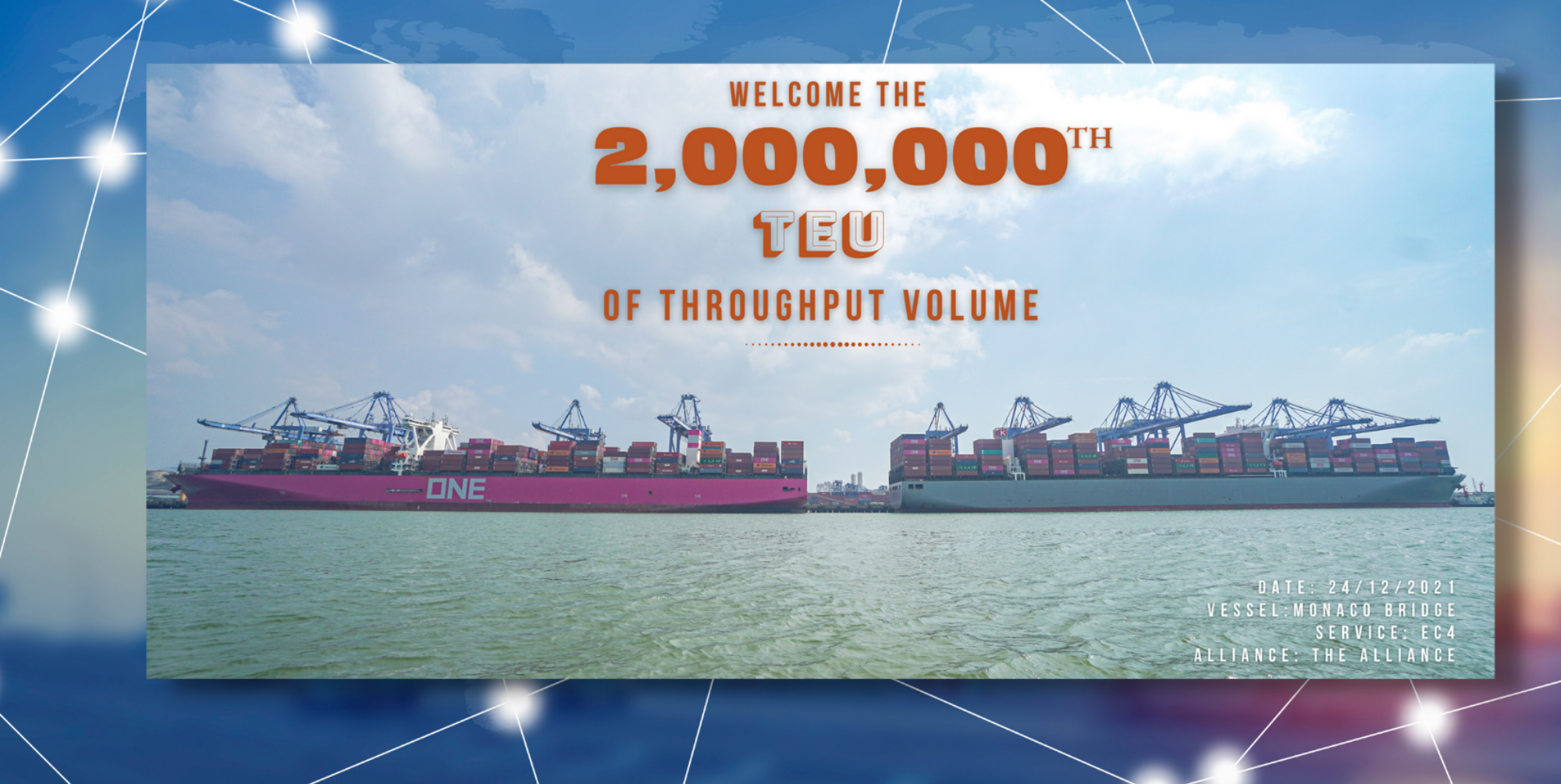
.png)

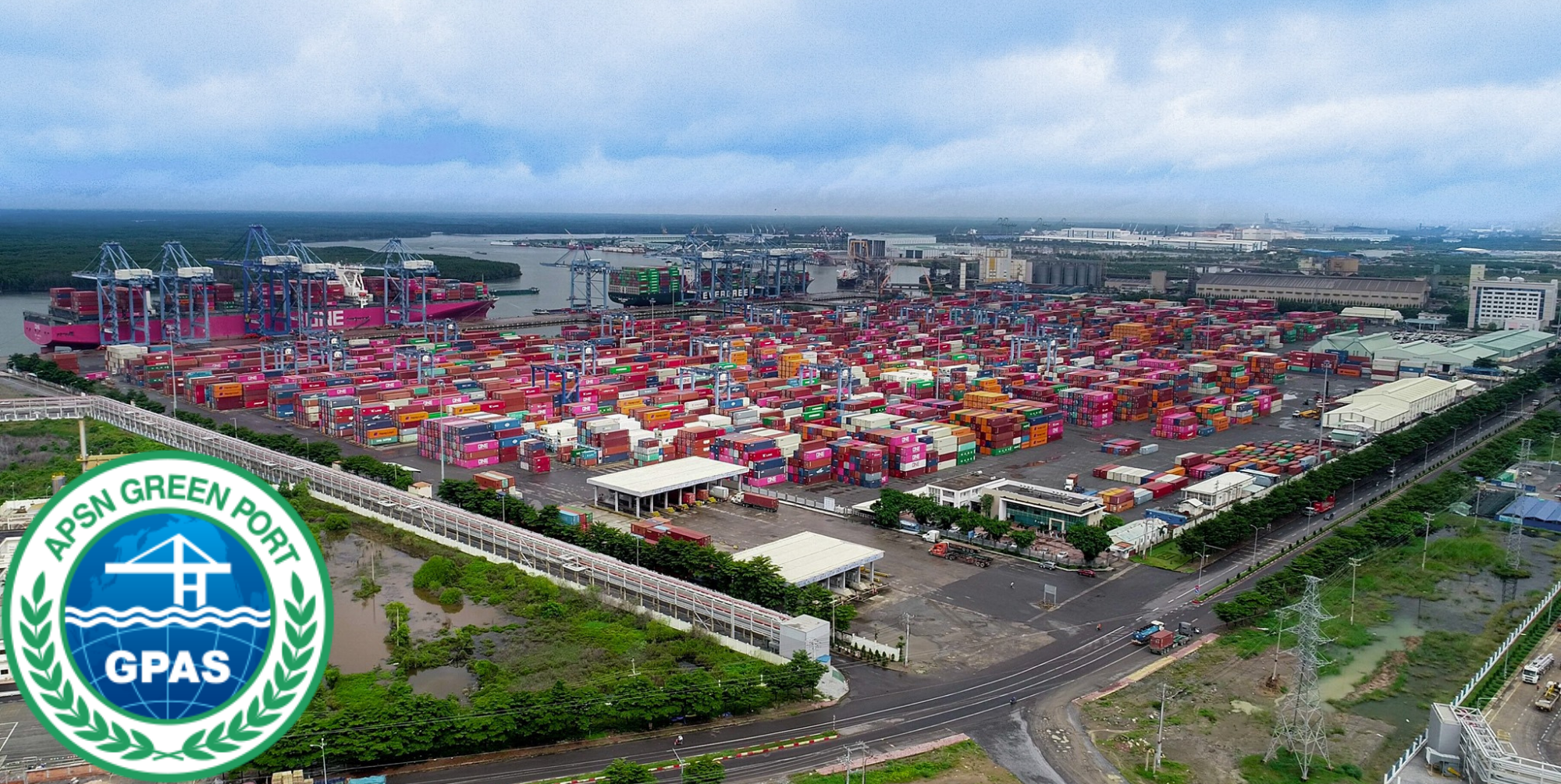

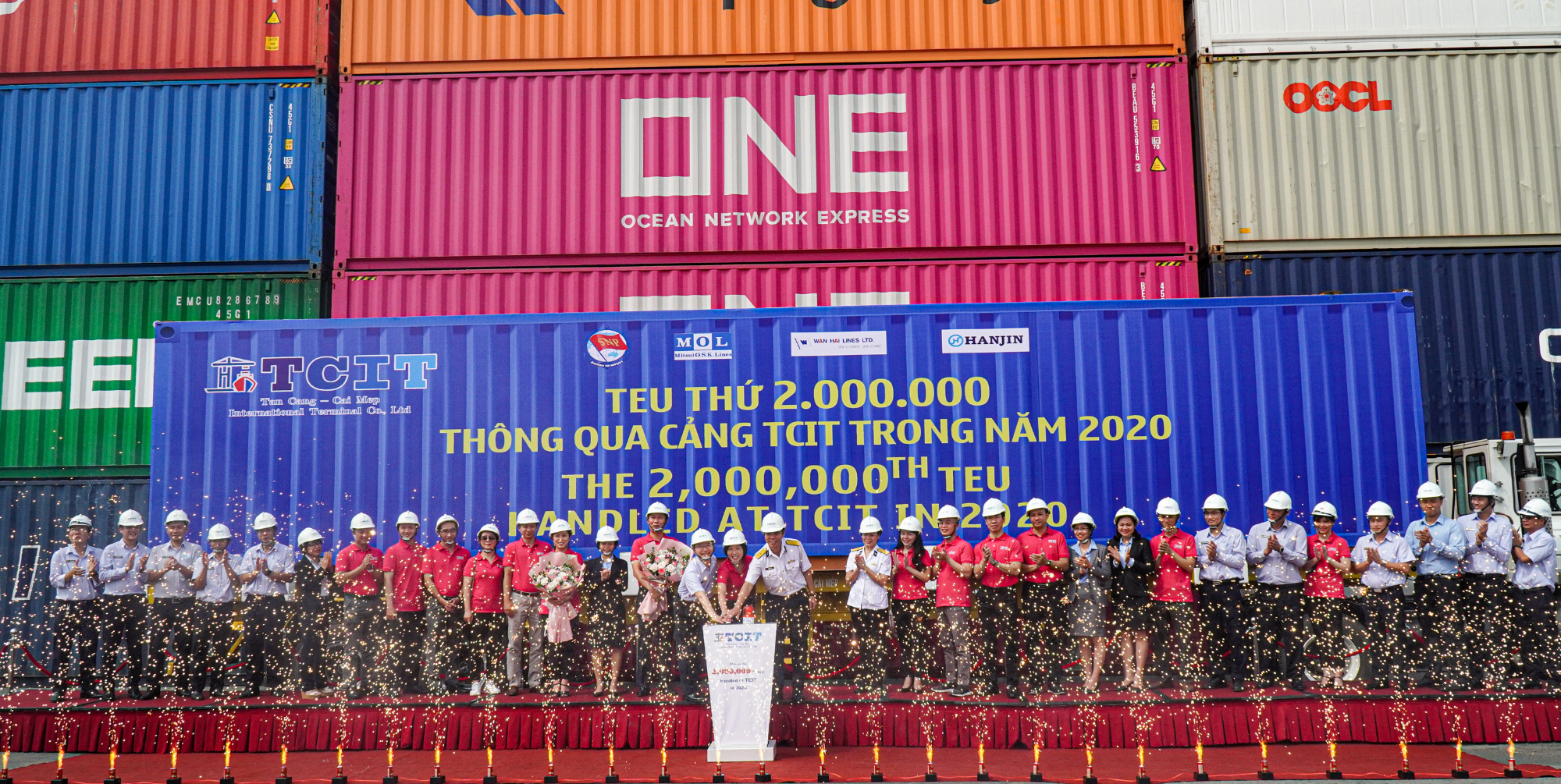
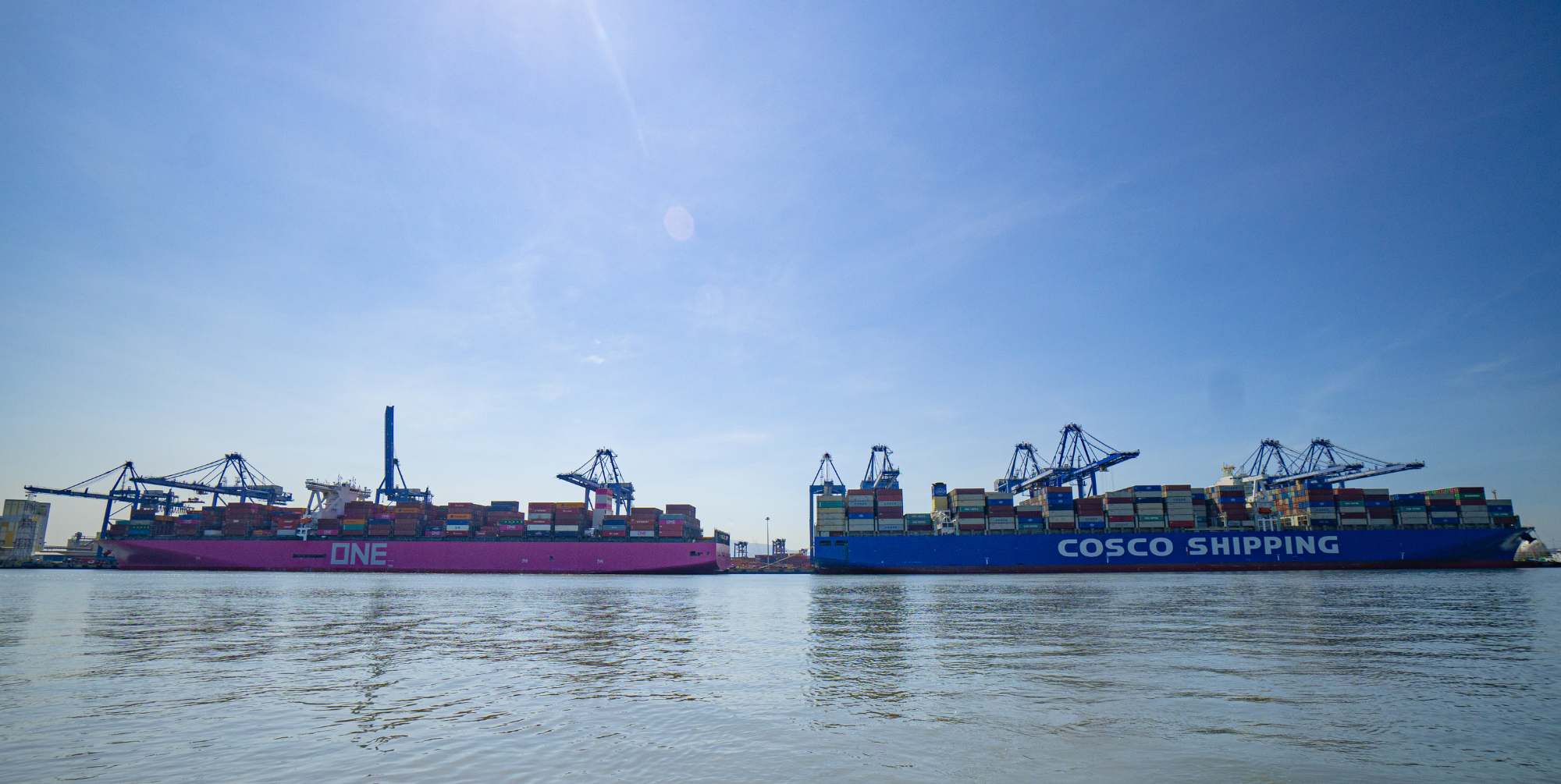
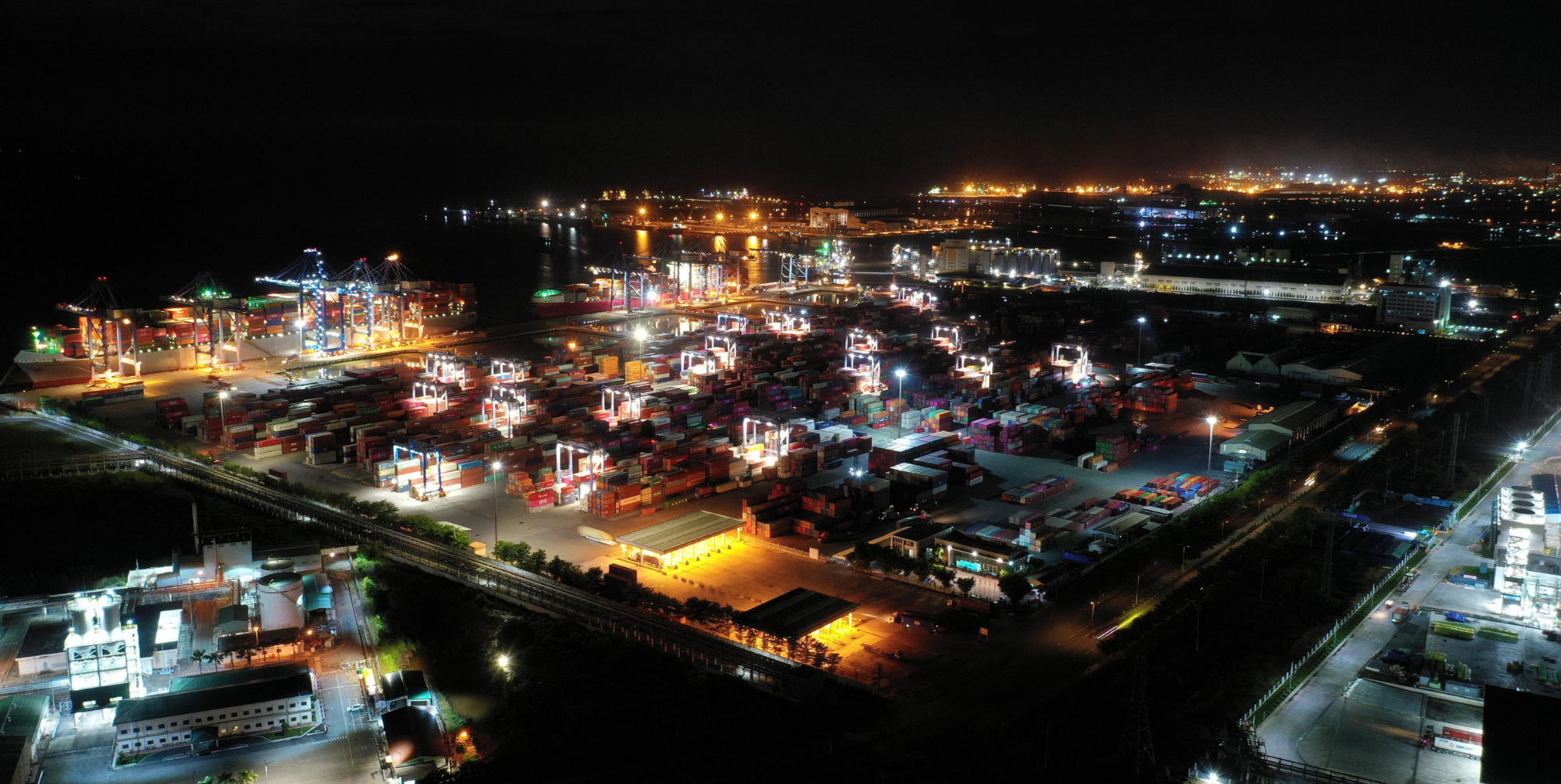
.jpg)
